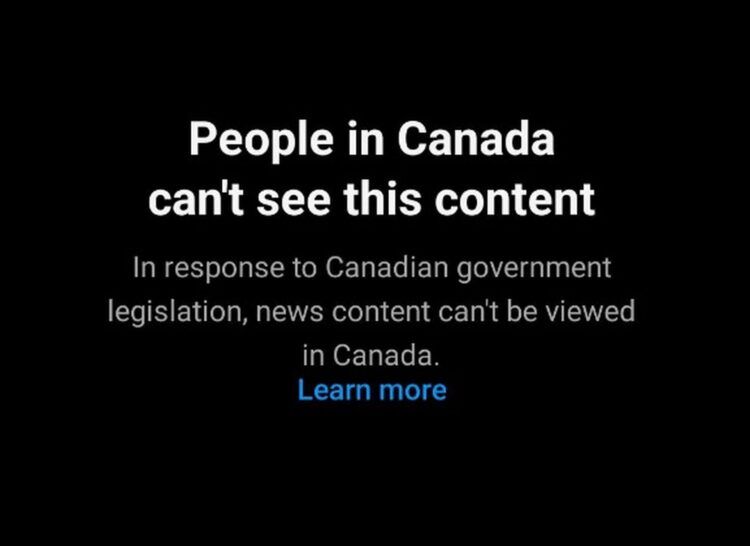In a dramatic turn of events, Meta, the parent company of social media giants Facebook and Instagram, has made headlines by blocking news content from its platforms in Canada. The reason behind this bold move lies in Canada’s recent implementation of the Online News Act, which received parliamentary approval in June 2023. The controversial legislation mandates tech giants like Meta to compensate news publishers for the use of their content on their platforms.
Unyielding in its stance, Meta has vehemently argued that the Online News Act is unjust, sparking a heated debate about the balance of power between tech giants and traditional media outlets. Citing concerns over the long-term implications for news publishers, Meta asserts that the law could potentially harm the very entities it aims to protect.
Scary times. I’m no longer able to see the @IndigiNewsMedia page or stories on @instagram. #BillC18 isn’t even in full force yet, and Meta and Google have started the blocking process. My heart is broken b/c I worked really hard on two stories last week and there are folks who… pic.twitter.com/8WG0RLPH2x
— Anna Mary Mckenzie (@legally_cree) July 31, 2023
As the conflict between Meta and the Canadian government escalates, the company remains resolute in its decision to withhold news content from its users within the country. The situation has sparked discussions about media independence, corporate responsibility, and the role of governments in regulating online spaces
Meta blocking news in Canada: Details
Meta, the parent company of Facebook and Instagram, blocked news from its platforms in Canada in response to the Online News Act, which Canada’s Parliament passed in June 2023. The law requires tech giants like Meta to pay news publishers for the use of their content. Meta has argued that the law is unfair and that it will ultimately harm news publishers. The company has said that it will continue to block news in Canada until the law is changed.
Meta has argued that the Online News Act is unfair because it forces tech giants to pay for content that they already have access to. The company also argues that the law will ultimately harm news publishers by giving them a financial incentive to create clickbait articles that are designed to drive traffic to their websites.
Meta has also argued that the Online News Act is unnecessary because news publishers are already able to make money from advertising. However, news publishers argue that advertising revenue is not enough to cover the costs of producing high-quality journalism. They also argue that the Online News Act will help to level the playing field between tech giants and news publishers.
Hello @PascaleStOnge_, I know it’s important to save big newspapers but those of us who aren’t owned by 🇺🇸vampire hedge funds need to put food on the table for our families. This fight with Meta is making that harder and harder. Our livelihoods are at stake. pic.twitter.com/UVatQxIpRu
— Christopher Curtis (@titocurtis) July 31, 2023
About Online News Act
The Online News Act, also known as Bill C-18, is a Canadian law that was passed in June 2023. The law requires tech giants like Meta to pay news publishers for the use of their content. The law defines “news content” as “content that a news publisher produces, and that is about current events, or that provides commentary or analysis on current events.”
The law also sets out a process for negotiating payments between tech giants and news publishers. If the two sides cannot reach an agreement, then an arbitrator will be appointed to decide on a fair price.
The impact of Meta’s decision
Meta’s decision to block news in Canada has had a significant impact on both news publishers and users. News publishers have lost a significant source of revenue, and users have lost access to a valuable source of information.

The decision has also sparked a debate about the future of journalism. Some people argue that the Online News Act is a necessary step to ensure that news publishers are able to continue to produce high-quality journalism. Others argue that the law is unfair and that it will ultimately harm news publishers.
It remains to be seen how long Meta will continue to block news in Canada. The company has said that it is willing to negotiate with Canadian lawmakers to find a solution that is fair to both sides. However, if the law is not changed, Meta is likely to keep news blocked in Canada indefinitely.
The decision by Meta to block news in Canada is a significant development in the debate about the future of journalism. It remains to be seen how the situation will play out, but it is clear that the issue is not going away anytime soon.
Featured image credit: Christopher Curtis/Twitter





